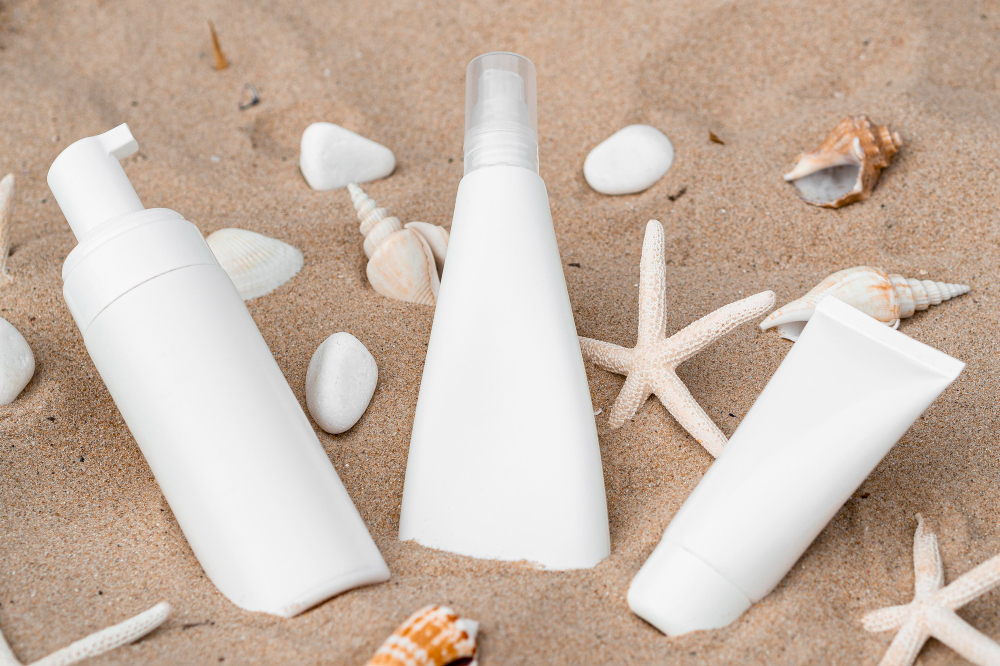In a world increasingly concerned with environmental sustainability, even our sunscreens are getting an eco-friendly makeover. Enter biodegradable sunscreen – a product designed to protect your skin from harmful UV rays while minimizing its impact on the environment. But what exactly is biodegradable sunscreen, and how does it differ from traditional sunscreens? Join us as we dive into the world of biodegradable sunscreen and uncover its benefits for both your skin and the planet.
Eco-Friendly Protection
Biodegradable sunscreen is a sunscreen formulation that is specifically designed to break down and decompose naturally in the environment. Unlike traditional sunscreens, which may contain synthetic chemicals that can harm marine life and coral reefs, biodegradable sunscreens use ingredients that are safe for ecosystems and aquatic environments. These sunscreens are typically free from oxybenzone, octinoxate, and other potentially harmful chemicals, making them a more environmentally friendly choice for sun protection.
Protecting Marine Life
One of the primary benefits of biodegradable sunscreen is its minimal impact on marine life and coral reefs. Traditional sunscreens containing oxybenzone and octinoxate have been linked to coral bleaching and damage to marine ecosystems. Biodegradable sunscreens, on the other hand, use reef-safe ingredients that are less harmful to coral reefs and marine life. By choosing biodegradable sunscreen, you can enjoy the sun safely while protecting fragile ocean ecosystems.
Harnessing the Power of Nature
Biodegradable sunscreens often utilize natural and organic ingredients that are gentle on the skin and the environment. Common ingredients include zinc oxide, titanium dioxide, and plant-based oils like coconut oil and jojoba oil. These natural ingredients provide broad-spectrum protection against UVA and UVB rays without the need for harsh chemicals. Additionally, many biodegradable sunscreens are fragrance-free and hypoallergenic, making them suitable for sensitive skin types.
Reducing Pollution and Waste
The production and disposal of traditional sunscreens can contribute to pollution and waste in our oceans and waterways. Chemicals like oxybenzone and octinoxate can leach into the water, harming marine life and disrupting fragile ecosystems. Biodegradable sunscreens, with their eco-friendly formulations, help reduce the environmental impact of sunscreen use by breaking down naturally in the environment and minimizing pollution and waste.
Sun Safety Without Compromise
Despite their eco-friendly credentials, biodegradable sunscreens offer effective protection against the sun’s harmful rays. With broad-spectrum SPF coverage, these sunscreens shield your skin from both UVA and UVB radiation, helping prevent sunburn, premature aging, and skin cancer. Whether you’re lounging on the beach, hiking in the mountains, or enjoying outdoor activities, biodegradable sunscreen allows you to enjoy the great outdoors safely and responsibly.
Choosing Certified Products
When shopping for biodegradable sunscreen, it’s essential to look for products that are certified as reef-safe and biodegradable. Look for certifications from reputable organizations like the Environmental Working Group (EWG) or the National Sanitation Foundation (NSF) to ensure that the sunscreen meets strict environmental and safety standards. Additionally, read ingredient labels carefully and avoid products containing oxybenzone, octinoxate, and other potentially harmful chemicals.
Embracing Biodegradable Sunscreen
In conclusion, biodegradable sunscreen offers a greener alternative to traditional sunscreens, providing effective sun protection without harming the environment. By choosing reef-safe and biodegradable sunscreens, you can enjoy the sun safely while minimizing your ecological footprint. With their natural ingredients, minimal environmental impact, and broad-spectrum sun protection, biodegradable sunscreens represent a step forward in sustainable skincare and sun safety. So next time you reach for the sunscreen, consider opting for a biodegradable option and do your part to protect both your skin and the planet.
